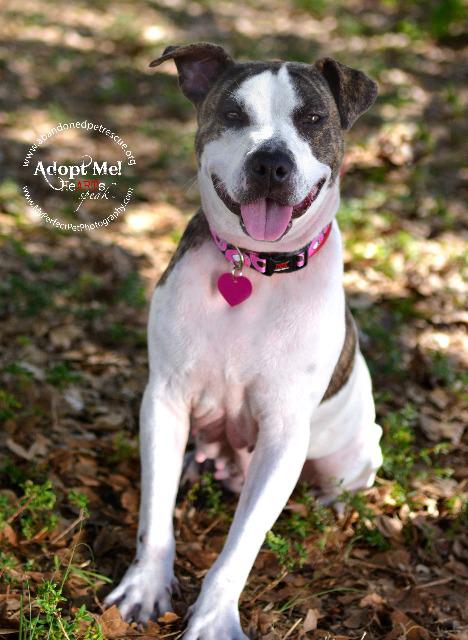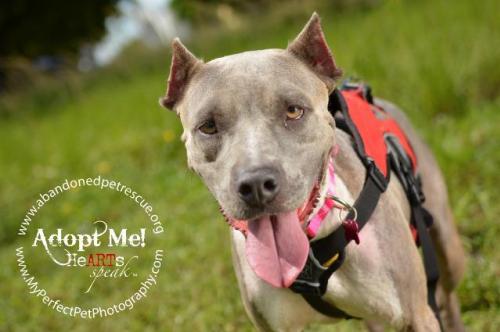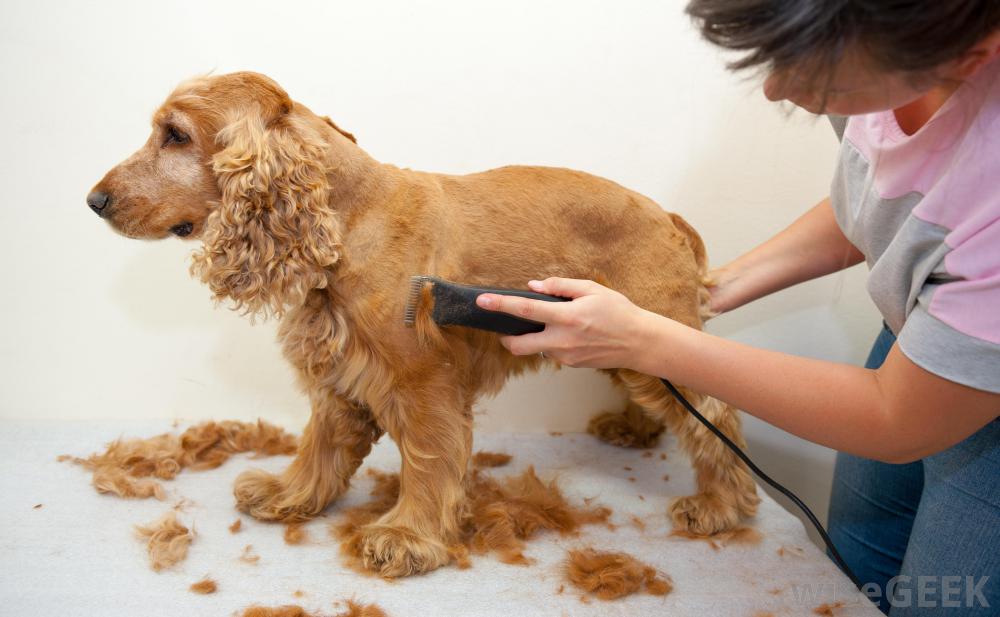Controversial Animal Issues Addressed: The Mike Bober Interview

What are the latest controversial animal issues being discussed behind the scenes by pet industry experts? How could it affect your dog? Come on a journey of discovery with me and learn the most cutting-edged news on issues like BSL, animal cruelty, pet store bans and more.
I’m sharing my conversation with Mike Bober, the new President and CEO of the Pet Industry Joint Advisory Council (PIJAC), an organization whose mission covers everything involving legislation and regulation at the federal, state, county and local levels across the country, having anything to do with the sale of any species. Mike is the man to give us the inside scoop. And, I was surprised by what he told me.
A little background…
Reading award-winning journalist, Kim Kavin’s book, The Dog Merchants, was a huge eye-opener. It clearly showed, through research without prejudice, how all breeders weren’t the enemy and that it’s more important that the dog you want to bring into your family come from a place with a high standard of care, than whether you chose to rescue or purchase from a breeder or pet store. My personal choice would still be adoption, but it’s not for everyone.
Then, Dr. Candace Croney further enlightened me through her scientific research study on what dogs need to be happy and healthy, which resulted in the Canine Care Certified program for breeders, including enrichment on emotional, intellectual and physical levels.

Mike Bober, Pres/CEO, PIJAC
When I caught up with Mike at the SuperZoo convention, I wanted to know what was happening with and his take on things like pet store bans, Breed Specific Legislation (BSL), animal abuse registries – a fairly new trend making its way around the country, and even dog groomer standards of care. So many of you bring your dog each month to a groomer, who you hope treats your baby with the same patience and love that you do.
This story may not be traditional style news, but to me, there’s nothing more stylish than being a responsible pet parent, and knowledge is power.
Read on to learn with me what’s at the cutting edge of these issues to protect those animals we love so much.
Re-visiting Canine Care Certified through PIJAC’s eyes…

Dr. Candace Croney
Photo courtesy of Purdue University’s Center for Animal Welfare Science
I think the work Dr. Candace Croney has done to create a new standard of care for dog breeders is spectacular, and I wanted to see what Mike had to say. Here’s his take: “There will be a tremendous cache to receiving that seal of approval,” he predicted. “I would think that that, in turn, will create a demand. As the public learns this is something they can look for, they’re going to ask to see it. That is going to encourage breeders and those who distribute the animals from breeders, to seek out that certification.”
We know commercial breeding has a stigma attached to it. “There’s a lot of folks out there, when they hear commercial breeder and they hear puppy mill, they think they are the same thing,” Bober explained. “Legally licensed and inspected commercial breeders are currently held to a certain standard by the USDA through the Animal Welfare Act. If they have more than 4 breeding females, they are legally required to license with the USDA. Anyone who has more than that number and isn’t getting licensed, they’re operating illegally. In our minds, that’s what we would consider to be a puppy mill. It’s a breeder who understands there’s a law that they should be held to, and yet who consciously chooses to avoid being licensed and inspected. It is my understanding that these new standards will exceed those currently in place under the Animal Welfare Act, so it will be a further incentive for people to be better than what is currently required. When the standards are out and available for review by everyone, we’re all going to be able to agree that this is a very positive step forward for responsible animal care and breeding.”
Animal Abuse Registries:

Registries listing those who’ve been convicted of animal abuse, are making their way across America. This is a very new concept, only about two years old. The first statewide animal abuse registry just came online this year in January in Tennessee, Mike told me. And, the only real consistency about them, state by state, is that there is none. Each one differs, based on the way the law creating it was written in the first place.
For us lay people, this is what they all generally say. There is a requirement that either the courts or the sheriff’s department or some sort of animal control agency has a responsibility that, when an individual in their jurisdiction is convicted of an animal abuse crime, that information is transmitted to this registry. And, that it is put out in some publicly accessible place.
“The difference we’re seeing from jurisdiction to jurisdiction, is in what the next step is,” Bober shared. “In some states, there are requirements that anyone who has transferred an animal to someone, even individuals in some cases, is required to check the registry to make sure the person isn’t on there, prior to transferring. There are other places where the only penalties are on the individuals themselves, should they attempt to acquire another animal. So, at this point, there’s no one answer for what they do.”
But, it’s a start. There is an aspect Mike shared with me that I hadn’t thought about. “The concern we have is in situations where there is a requirement for verification at point of sale,” he stated. What he means by that is when someone goes to complete buying or adopting an animal, the worker or volunteer completing that sale being required to check the abuse registry and deal with the individual in front of them.
“The reason for that is simple,” he goes on to say. “The pet industry – shelters, rescues – we have a lot of very young employees; we have a lot of older employees. There are people in the pet industry who work a cash register or who volunteer in a shelter who are doing this as an after school job; who are doing this as their first entry into animal care. And, with the demonstrated link between animal abuse and violence against people, we consider that to be a really bad idea. To force a 16 year old kid to have to look up someone who shows up on the animal abuse registry and have to say, I can’t let you buy this animal right here, right now, because you’re on this registry. If there’s ever an incident that’s going to lead to violence, I would think that would be it.”

This is something PIJAC is addressing. “We’ve talked about things like publication of the signage, almost like the Wanted posters they used to put up in post offices,” Mike disclosed. “The reality is that most jurisdictions don’t have a large number of people in their registry. Animal abuse crimes, while they are horrific, don’t happen as often as, say, domestic violence cases. So, it’s not like there would be this floor to ceiling wall of pictures.
“We also believe that, if it’s the intent to keep these people from acquiring animals, the responsibility is to keep them out of places where they can potentially get animals in the first place. Rather than waiting for them to do their shopping and then try to check out, we think there are other ways to approach it. We’ve tried to have that conversation with the people who are advancing those registries; sometimes we’ve been successful, sometimes we haven’t. But, we feel it’s an important issue that definitely requires additional effort.”
- What do you think about this issue? Do you agree that it’s a bad idea to ask employees or volunteers to check the registry before “selling” an animal to someone? Do you think it’s the only sure fire way to stop those who shouldn’t be getting an animal in the first place? Join the conversation below in the comments.
Either way you look at it, this is a very ambitious goal. It’s hard to cover every place where animals are sold. I asked about whether someone convicted of dog fighting would be included in a registry such as this. “That depends on the jurisdiction,” Mike said. “If the jurisdiction considers dog fighting to be an animal abuse crime, then they would. And, in most places around the country, dog fighting is an animal abuse crime.”
But, animal abuse registries are not mandatory for a state to have. I asked what could be done to make it so.
“I think, realistically, the best approach is to show what’s working elsewhere; to present what’s called Model Legislation; who’s doing it well, where is it working,” Bober described. “Because we’re just a year or two into this new trend, it’s been hard to determine where the success story is. The longer in existence, the more comparables you have. We’re eagerly watching it. We think Tennessee is a good model.”
Breed Specific Legislation (BSL)

Fontina
How many of you live somewhere where it’s illegal to have a Pitbull or a Doberman Pinscher or another breed? Just next door to us in Miami, it is illegal to own a Pitbull, and it blows my mind how ignorant and fear-biased it is. Pitbulls aren’t even a breed, and a whole host of bully breeds are lumped in with them by nothing more than a look they have.
BSL is one of the issues at the heart of what PIJAC is doing, so Mike Bober was the man to ask about where things are at.

Candy
“We find we actually align with folks about BSL, who are opposed to us on other issues,” he said encouragingly. “BSL is an issue that we in the industry, as well as activists like the Humane Society of the United States, the ASPCA, we all tend to agree, as does the American Veterinary Medical Association. Legislation that singles out a breed or a breed type is not based in any sound science or data. It’s a fear response. It’s an overreaction to public incidents. So, we at PIJAC are opposed to the use of breed as a rationale for any sort of restriction or litigation.”
But, how do you bring around the politicians who can enforce real change? “Well, the good news is I think the public is doing that,” he enthused. “We’re seeing a real trend away from the introduction of Breed Specific Legislation, but there also have been an increasing number of jurisdictions that have sought to repeal existing BSL. Legally, the public is on our side. People recognize there is no such thing as a bad breed; that temperament, training and, frankly, owner responsibility play a large role in all of this.” Amen. I hope we see the day in the not too distant future, when BSL no longer exists.

Fiona
- Have you been personally affected by BSL laws? Share your story below.
Pet Store Bans
I, too, cheer when I read about a state that’s banned the sale of breeder dogs in pet stores. What I wanted to know from Mike is, is this as good a thing as it seems and is it making a difference? I didn’t expect what he told me.

“Pet sale bans are, unfortunately, one of those types of legislation that have the best intentions behind them, whether it’s that people believe they’re attempting to address shelter overcrowding or care conditions at the site of breeding,” he explained. “We understand where they come from, but at the same time, we’re opposed to them because they are not the solution to the problem that is being presented.
People say too many animals are being bred. The reality is that only 4% of dogs that are acquired every year come from pet stores. I don’t think it was ever as big an issue people thought it was in the first place. People say, look at all these jurisdictions that have placed bans. Two thirds of the jurisdictions that have placed sales bans, didn’t have a pet store in the jurisdiction in the first place. By sheer math, they can’t have impacted the problem, because they weren’t part of the problem to begin with. Last time we checked, there were fewer than 500 stores nationwide that sell dogs or cats at any significant volume. So, the number of pet stores selling dogs is very small, compared to the number of pet stores in total.
“The number of USDA-licensed breeders, who are the only breeders who can legally sell to pet stores, is also small. There are only 1700 USDA-licensed breeders in the country. So, the idea that, somehow, targeting this tiny portion of all sales nationwide is going to solve this broader national issue, we believe is an emotional response to a very serious problem that doesn’t do what it’s supposed to.
“And, that’s why we think the better approach and something we did just this past year in Arizona, is for states to look at the possibility of sourcing restrictions. Sourcing restrictions are different than bans in that they don’t prohibit the sale of dogs; they simply prescribe criteria that pet stores need to use when deciding who to buy their dogs from. For example, that they have USDA licensing, that they have no direct violations in the past 3 years, and in some cases fewer than 3-5 indirect violations. And, these are great things because you, as the consumer, can actually go to the USDA’s website and check for yourself. You can look at a breeder, you can see whether this breeder has been acting responsibly; whether this breeder has a pattern of problem abuses they’ve been cited for, and you can actually make your decision as to whether this is a breeder you want to be supporting with your purchase.”
Grooming regulations:

This year, three states introduced groomer licensing bills; Massachusetts, New York and New Jersey. We’ll have to wait what happens there. “What we’ve been doing in all three cases, is reaching out to the bill’s sponsors, making sure they’re aware of the efforts of the industry through the Professional Pet Groomers and Stylists Alliance,” Bober explained. “Last September, we rolled out standards of care for the industry and we’re hoping we’ll be able to use those as a starting point for conversations to ensure people are dealing with responsible groomers.”
- Have you ever had an incident at the groomers? Would you like to see an established standard of care practice implemented that you and your pup could be protected by? Join the conversation in the comments below.
Summary
From what I’ve been seeing and learning, there seems to be a real desire to raise the level of care for animals, dogs especially, across the board. Programs like Canine Care Certified is groundbreaking for breeder’s dogs and for those who want to buy from breeders. It gives us so much more power to make educated choices, support the good breeders and help insure that bad ones don’t survive.
Public outcry about animal abuse and BSL are the catalysts for the registries being implemented. We’re in early days there, but if you want to see an animal abuse registry in your state and it doesn’t have one, make your voice heard. BSL seems to be on the wane. Thank goodness public outcry, again, is having a positive effect on legislation being reversed or not imposed at all.
It’s heartening to hear from many powerful players in the pet industry that there are real solutions in the works, real programs being implemented and real results being seen, pertaining to making life safer and healthier for dogs.

Mike and Murphy
At the end of our interview, I asked Mike, an avid animal lover with a good sense of humor, about his own pets. He told me he’s a dog dad to Murphy, a 13-year-old Cocker Spaniel they rescued from the Washington Humane Society in D.C. ten years ago. “He’s stone deaf now,” he shared. Then, without skipping a beat, he added, “But, give him a summer haircut, and he runs around like a puppy.” ‘Atta boy, Murphy!
Fontina, Fiona and Candy are all available for adoption at Abandoned Pet Rescue.
Have you had experience with any of these issues? Tell your story.
If you liked this, you may also like my story on:




